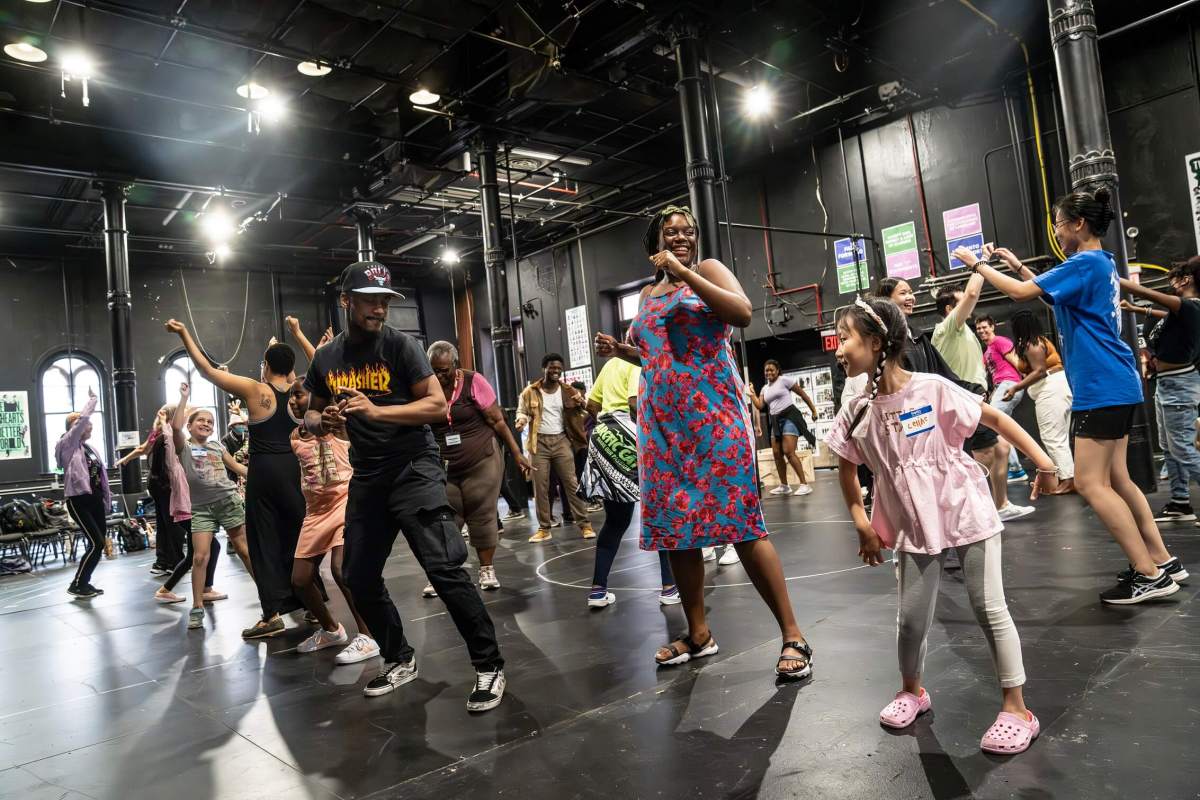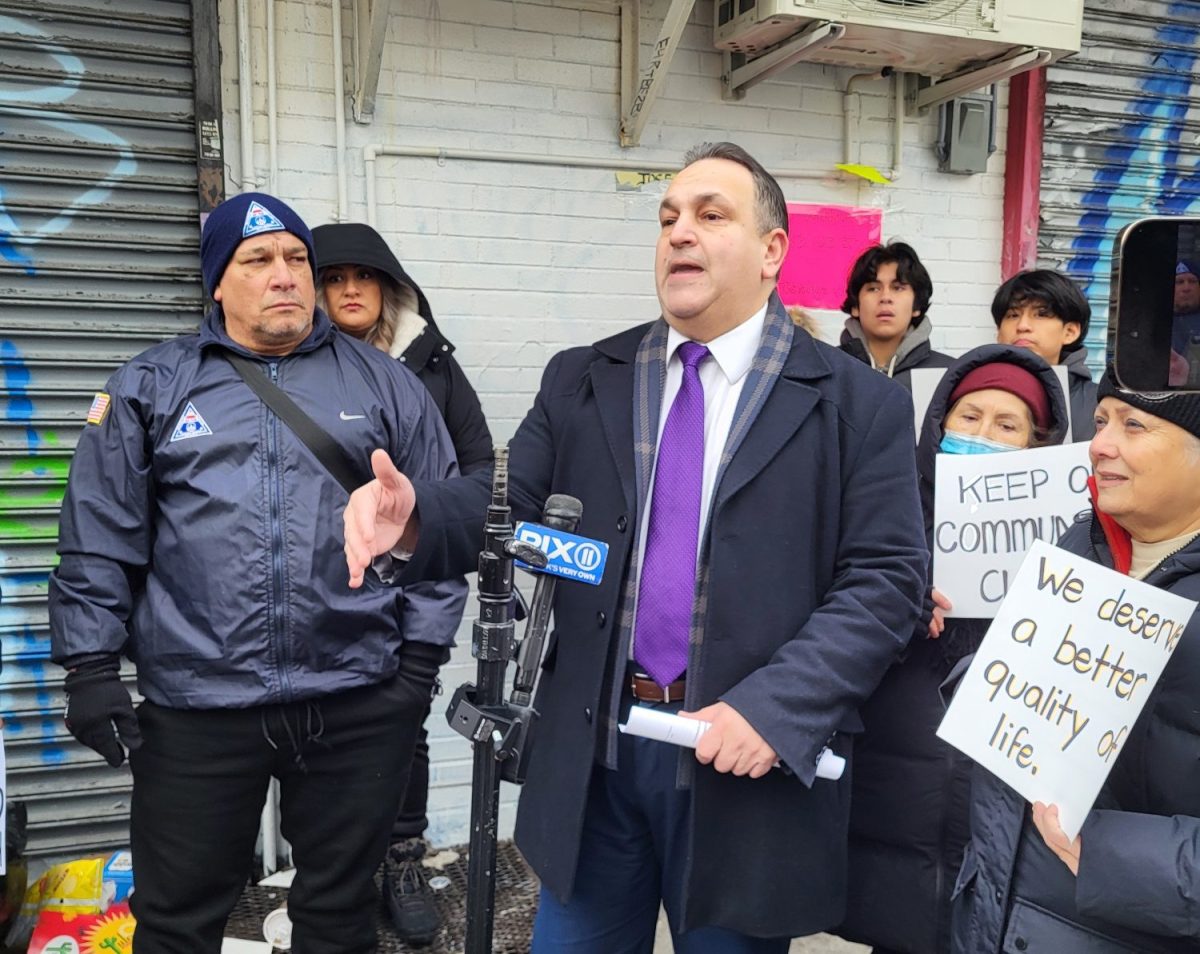This summer marks the 10th anniversary of the Public Theater’s celebrated Public Works program, in which community members from all five boroughs join professionals to perform elaborate musical adaptations of Shakespeare plays and other classic works at the Delacorte Theatre in Central Park. As with Shakespeare in the Park, tickets to Public Works productions are free.
Shakespeare’s late-career fantasy drama “The Tempest,” which was the first Public Works production in 2013, is being performed this week in a new 90-minute adaptation devised by songwriter Benjamin Velez and Laurie Woolery. Leading the cast is Tony Award winner Renée Elise Goldsberry (“Hamilton”) as the sorcerer Prospero.
We spoke with Woolery, who is the director of both Public Works and the production itself, which will be the last show at the Delacorte Theatre before it undergoes a lengthy renovation process.
Q: What made you decide to revisit “The Tempest” at Public Works?
A: Since COVID, people have been locked away in their own little isolation. We’ve all been on our own little island on the island of Manhattan. Learning to be with each other is a kind of new goal and a new skill we have to relearn. Just as the character of Prospero has been angry for what has been lost and taken away from her, I’ve seen that with my fellow citizens in Manhattan and across the country. People are in mourning for what they’ve lost, grief for who they’ve lost, grief around opportunities lost and a moment in time they can’t get back. This desire for justice has a very thin line with retribution.
Q: How is that reflected in “The Tempest”?
A: Prospero wants justice and that then turns into repeating the cycles that overthrew her. Through being a parent and the love of a child, Prospero changes and realizes that it is only through true forgiveness that healing can begin. For me, that is a mirrored reflection of what our communities have been enduring for the past several years.
Q: Have you changed the island setting of the play?
A: We inherited the “Hamlet” set, so we have deconstructed it. As opposed to tropical islands, we started looking into islands that were abandoned. We were inspired by Manhattan and the islands around it that many of us don’t even know about. What people will see is a building in disarray, that is collapsing on itself, and that is what Miranda and Prospero have been surviving in.
Q: What made you decide to cast a woman as Prospero?
A: This is completely a personal taste. I think the relationship between mother and daughter is a powerful relationship in society, and I think it’s different from father and daughter. When I have seen productions with Prospero as father, it feels like the relationship with Miranda is about preserving her chastity and that becomes the focus of the play. I found it was really interesting to think of women in the play, with Prospero as mother and Miranda as daughter and Gonzalo as ally. Our Prospero is younger because in order for it to make sense that Prospero has a 16-year-old daughter, you can’t have a 60 or 70 year old woman playing Prospero.
Q: What is the score like?
A: Benjamin Velez wrote the music and lyrics and it is an incredibly challenging score. We have complicated harmonies and challenging arrangements. We started doing harmonies in “As You Like It” but we had a smaller group of singers that would hold down the harmonies. Now our entire community is singing in harmonies and the sound is very big. It’s very epic and emotional and it’s varied.
Q: Over the years, the community members have become a more integrated presence in the shows.
A: What we really created over these 11 years is a massive integration. We don’t have the seniors doing a dance number and the Children’s Aid choir singing a song. Everybody is fully mixed together into the ensemble. We have a community member holding down one of the clown roles. We have community members as the young lovers. We have mostly community members as the lords. Instead of one Ariel, we have Ariel in the form of seven bodies, six of them being community members, ages 8 to 78. Ariel, this character of Shakespeare’s, shape shifts throughout the play. Public Works gives us the ability to shape-shift in real life.
“The Tempest” runs from Aug. 27 to Sept. 3 at the Delacorte Theatre in Central Park. For info on distribution of free tickets visit publictheater.org.
Read more: Jonas Brothers Launch NYC ‘Happiness Begins’ Shop





































